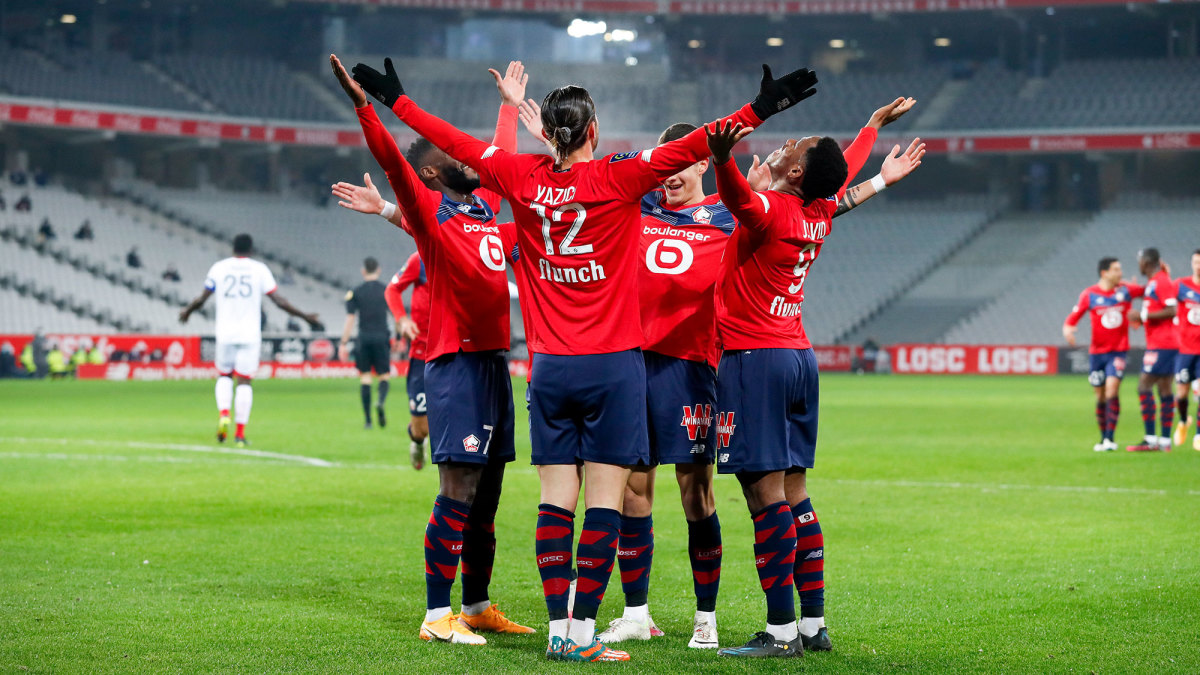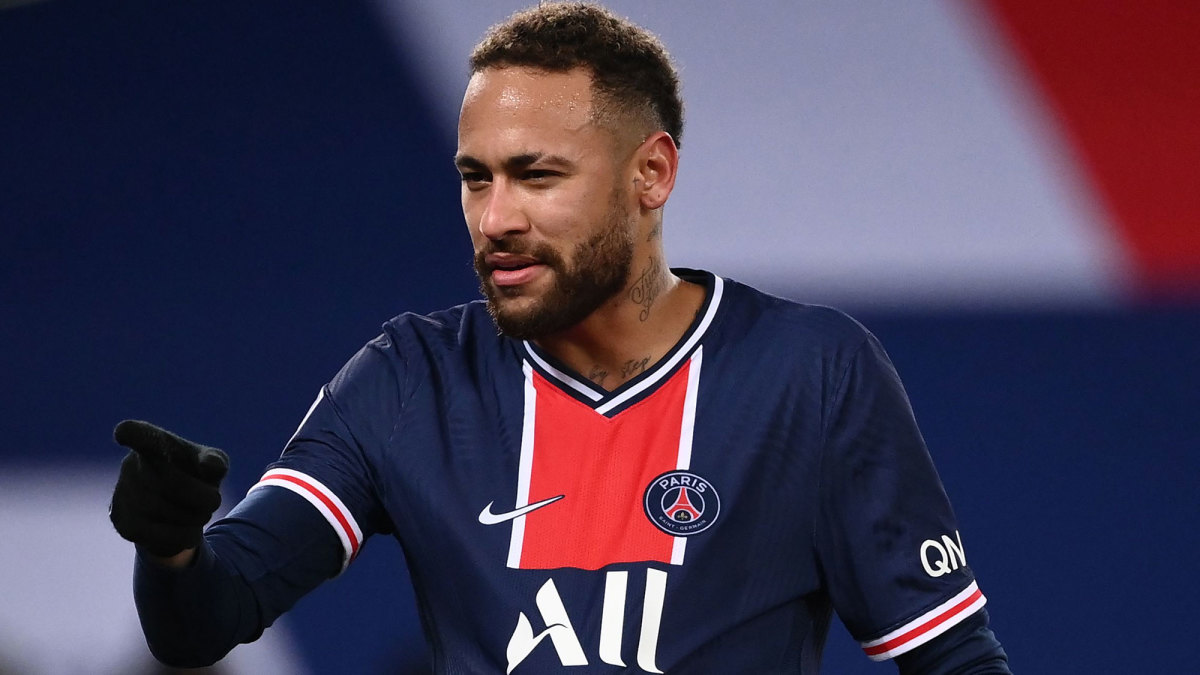French Football Needs Neymar More Than Ever

France may be home to the reigning men's World Cup champions, but beneath the surface, all is far from well as it relates to the state of the game at its core.
Six months after the start of a broadcast rights deal that promised to elevate French club football to previously unknown heights, the contract was broken. There was a time this week that its professional leagues found themselves in crisis, with several clubs potentially facing bankruptcy. The immediate storm may have passed, as an interim deal has been reached to stave off the worst (for now), but it remains both incongruous and telling that this same week, Paris Saint-Germain has reportedly agreed to extend the contract of Neymar, the best-paid player in French football history, by four more years to 2026. An entire football culture, having lived in the shadow of one player, now looks dependent upon him.
Sometimes when things look too good to be true, it’s because they are. When Mediapro, a conglomerate based in Barcelona, offered around $1 billion a year to broadcast French football for four seasons—60% more than the previous deal—it was heralded as a deal that would elevate Ligue 1 to the level of top leagues in Spain, Italy and Germany. That Mediapro had no existing broadcast platform, and that no financial guarantees were offered, had led Serie A to pull out of a similar deal, but the French authorities, desperate for a leg up, pressed ahead regardless.
Mediapro set up a new channel, Telefoot, that broadcast 18 games a weekend: eight from Ligue 1 and 10 from the second-tier Ligue 2. But it had no other exclusive football content and, worse, Canal+, which sublicensed games from beIN Sports, had first choice of the other two. Only 600,000 subscribed—and it needed four million to break even. A first payment was made to the league in August, but subsequent payments totaling $400 million failed to arrive in October and December.
Mediapro has blamed the COVID-19 crisis for the low uptake, but while that has certainly led to economic uncertainty, other providers have seen profits soar during the various lockdowns with a captive audience turning increasingly to their televisions or streaming devices for entertainment. There was, after all, no other legal way of watching those 18 games in France, either on screen or at the stadiums. Besides which, there was evidence Mediapro was struggling long before the pandemic, with revenues down in 2019 and two credit rating agencies' downgrading them effectively to junk-bond status.
And the truth is that, while COVID-19 may offer an easy excuse for all manners of mismanagement, it has had a huge impact. All clubs have taken a serious hit over the past year, but Ligue 1 was the highest-profile league to abandon its season—something forced on it by a decision taken by prime minister Edouard Philippe. England, Spain, Germany and Italy all found a way of playing on and salvaged at least some income as a result. Jean-Michael Aulas, the Lyon president, estimated lost revenue at around $1 billion for the league; Ernst and Young suggested around $700 million. There were rebates of around $125 million to domestic broadcasters and $25 million to international rights holders.
The Bundesliga, by restarting earlier than the other leagues, perhaps even attracted additional fans—although it will be a while before there is definitive evidence. French football, meanwhile, disappeared. It was already the least of the five major men's leagues: Being out of sight has probably shoved it even further out of mind.
That highlights another issue: Is France really part of a Big Five European leagues, or is there really a Big Four plus PSG? Lyon and Monaco have recent experience of Champions League semifinals, but both are fundamentally selling clubs. Over the last four years, Monaco has brought in $120 million net from transfers, Lyon $190 million.

Or take the case of Lille, the current leader. It was bought by Formula 1 entrepreneur Gerard Lopez in 2017. He appeared to do almost everything right. He appointed Marc Ingla, who had worked with Ferran Soriano and Txiki Begiristain at Barcelona, to run it, and brought in Luis Campos, formerly of Monaco, to oversee transfers. Marcelo Bielsa left for Leeds very quickly, but there was a logic to the project. There have been clear successes in terms of recruitment and sales, most notably Nicolas Pepe, who was sold to Arsenal at a profit of $75 million, and Victor Osimhen, sold to Napoli at a profit of $60 million. But even then, despite decent form in the league and progress in the Europa League, the club never had any money. In December, Lopez was forced by the club’s major creditors, JP Morgan and Elliott Management, to sell up to a hedge fund led by former banker Maarten Petermann.
Making money in French football and even beginning to try to compete with PSG, which is backed by the Qatari state through Qatar Sports Investment, is essentially impossible. PSG may have fallen from fifth to seventh in the most recent Deloitte Football Money League, which was published last week, with revenues falling from $760 million to $650 million, but Lyon is the only other French club in the top 30. There’s a reason Aulas has decided to increase his focus on women’s football, and there’s a reason too that when Kyril Louis-Dreyfus, the multibillionaire son of Robert Louis-Dreyfus (the former majority shareholder at Marseille), decided to invest in a football club, he opted not for a French side but for English third-tier club Sunderland.
A court ruling allowed Mediapro to relinquish the remaining rights for $120 million, and the Ligue de Football Professionel staged an emergency auction this week. It had hoped Canal+ would step in, but instead, the channel, furious that it has not been allowed to renegotiate its existing deal in the much-changed landscape, handed back the rights it currently holds and sued the league. Neither Canal+ nor beIN Sports made bids in the auction, and none of the three companies that did bid—Amazon, Discovery and DAZN—reached the reserve price.
The result was an extraordinary financial crisis for French football, which, already denied gate receipts, found itself without television revenues, either. On Monday, the front page of L’Equipe, the French sports daily, read “48 hours to survive.” This, for many clubs, became a struggle for existence.
An agreement was eventually struck on Thursday, with Canal+ paying $240 million on top of what it has already paid to broadcast the rest of the season. The package for this season is thus around $20 million less than last season and around 40% down on what had been anticipated. With the longer-term future still uncertain, that has done little to dispel the gloomy acceptance that, while the pillaging of French clubs by wealthier European rivals that many feared didn’t happen in January, it almost certainly will in the summer, reducing the allure of the league and enhancing PSG’s domination even further.

That domination was underlined by the club's reported extension with Neymar, who turned 29 on Friday. His relationship with PSG since signing for a world record $265 million in 2017 has not always been straightforward, and he made clear last year that he was in favor of a return to Barcelona. With Barcelona announcing debts of around $1.4 billion, though, that is impossible, while Real Madrid is equally unwilling or unable to meet an asking price in the region of $170 million. Perhaps a Premier League club could afford him, but Neymar said this week he was reluctant to move to England because “there's a lot of physical contact involved in the game.”
Neymar insisted in an interview last Sunday that things had changed at PSG and he was now happy to stay—which may be related to the arrival of Mauricio Pochettino as manager, or to the lack of realistic suitors. When he initially went to France, it was to escape Lionel Messi’s shadow and try to promote his own image with that of PSG. It now looks a marriage of mutual convenience—especially if his presence is the lure that brings Messi to the French capital next summer.
PSG gets the kudos of an instantly recognizable and popular global star, and he gets a relaxed lifestyle in Paris, effectively guaranteed participation in the Champions League and a domestic competition that allows him a social life.
“I've been in football for several years," he told TF1 this week. "If you stay 100% with your head focused on just playing football, in my opinion, you end up exploding. It is my time to relax, to be calm. ... I will never stop doing it." Whether Pochettino, appointed as PSG coach last month, agrees remains to be seen.
But there is a sense, too, that French football now needs Neymar. He and Kylian Mbappé are bona fide stars. They are players in whom a global audience will be interested. Mbappé’s contract expires in 2022, but PSG is optimistic about securing an extension for him as well, and soon, and if he stays, PSG—and Ligue 1 by extension—could have two supremely marketable assets for the next two World Cup cycles. Mbappé is just 22, though, and has never played anywhere but France. It may be that he decides it is best for his career development to test himself beyond a league in which PSG was effectively guaranteed the championship even before the likely exodus of the summer.
And so French football is left looking to Neymar. He came to Paris looking to project himself to the world and now, for all the imbalances he represents, he is perhaps the greatest hope for the French league of finding at least a moderately lucrative rights deal for next season, generating revenue and maintaining the French league at least on the fringes of the European elite.
It’s a remarkable turnaround—and probably not a healthy one.
